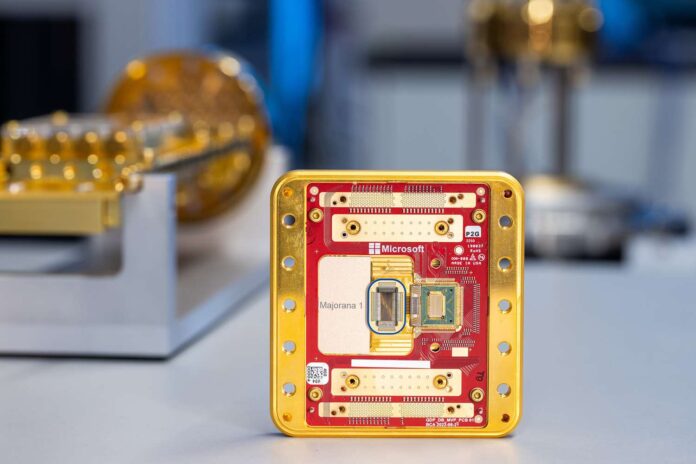Microsoft has introduced its new quantum computing chip, Majorana 1, claiming it brings the technology significantly closer to practical use.
The company said the chip, designed to reduce error rates in quantum calculations, positions quantum computing as a near-term breakthrough rather than a distant possibility.
Quantum computing has the potential to revolutionize fields such as medicine and chemistry by solving complex problems beyond the capabilities of classical computers. However, the technology also poses risks to current cybersecurity systems, as it could break conventional encryption methods.
A major challenge in quantum computing has been controlling qubits, the fundamental processing units, which are prone to errors. Microsoft said its chip, which is based on a rare subatomic particle called the Majorana fermion, has a lower error rate than competitors.
The Majorana 1 chip has been in development for nearly two decades and was fabricated in Microsoft labs in Washington state and Denmark. It is built using indium arsenide and aluminum, with a superconducting nanowire that allows it to observe the elusive Majorana particles.
Microsoft executives said the chip could be controlled with standard computing equipment, differentiating it from rival approaches by Google and IBM.
Microsoft did not provide a timeline for scaling up its quantum chip but stated that practical quantum computing is now “years, not decades” away. The company’s claim comes amid industry debate over when quantum computers will surpass current AI chips.
Nvidia CEO Jensen Huang recently predicted the shift was still two decades away, while Google said commercial quantum applications could arrive within five years. IBM has projected large-scale quantum computing by 2033.
Microsoft executive vice president Jason Zander described Majorana 1 as a “high risk, high reward” strategy and said the biggest challenge was solving the underlying physics. “There is no textbook for this, and we had to invent it,” he said.




